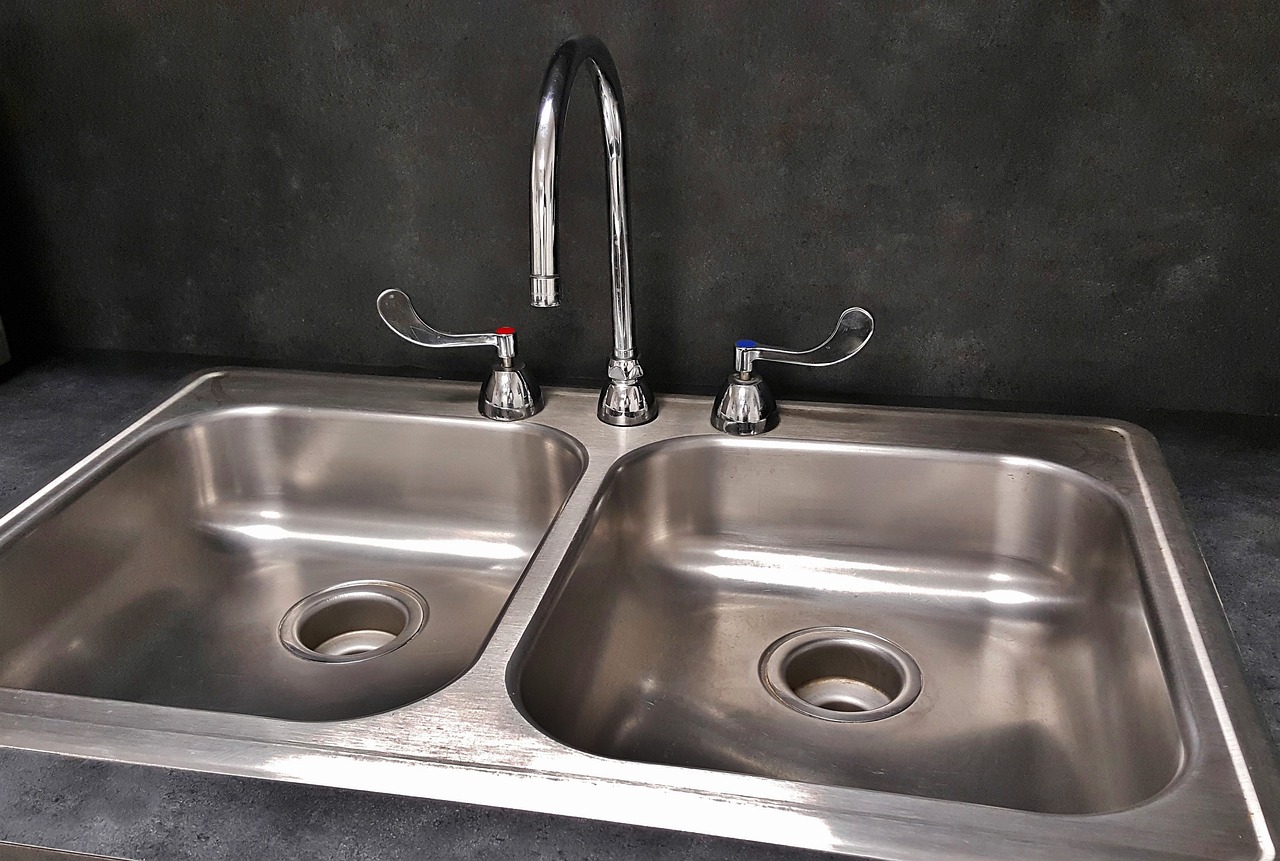Sinks are generally pretty simple, right? Water goes in, goes down the plug and drains away, right? Well, anyone who’s pulled up the stopper and heard a gurgling, rushing sound will tell you, there’s a lot more going on than you might think. If you pull the plug and hear your sink gurgling (or your bath or basin), you might be wondering what’s going on. You’re almost certainly wondering what needs to be done to fix it. Well, read on.
Understanding the Gurgling Sound
Any sink can go from whisper quiet to producing that drain gurgling sound; kitchens, bathrooms, utilities. Regardless of which sink (or sinks) is making the gurgling noise, what we need to understand is a little of the mechanics of drainage.
When a drain is working properly, water flows down almost silently. When the sink is empty, what little noise is produced stops altogether. When the flow stops but the sink is making a gurgling sound, something has clearly gone wrong.
A properly working drain works through a combination of gravity (pulling water down) and airflow (to regulate pressure and avoid vacuums forming). When something interrupts this process, you might find your sink draining slowly or making that gurgling drain noise.
Causes of A Gurgling Sink
If your sink is making a gurgling sound there are a few likely culprits:
- A partially clogged drain
- A blocked vent
- Improper installation
- Issues further down the line
Partially Clogged Drains
The sound of gurgling can often be a symptom of a clog forming within your drain. As we use our sinks, little bits of food, hair, grease, soap and other things find their way down the plughole. Eventually, they block the pipe, restricting the flow of water.
While this clog is forming, water can still pass through, though not as smoothly. This can lead to that distinctive gurgling sink drain sound as water and air mix within the pipe in ways they shouldn’t.
A Blocked Vent
The flow of water within your drains isn’t purely down to water: air has a role to play too. Your sinks will generally make use of air vents to protect the water seals within their traps. These traps mean that sewer gases are blocked from entering your home. More significantly in terms of gurgling drains, they also ensure that the air pressure within your drains stays steady. This avoids your traps either siphoning down-line or experiencing backflow.
When something blocks a vent, the result could be a gurgling sink as air (or gases) and water mix within the trap.
Improper Installation
It goes without saying that something that’s been installed badly is likely to face all kinds of issues. A trap that isn’t properly vented or a drainpipe at a weird angle could well cause a gurgling noise. Without seeing exactly what has gone wrong, it’s hard to diagnose, but if there’s no sign of a clog this is the next place to check.
Issues Further Down The Line
Of course, a sink’s drain system doesn’t end at the trap. It’s perfectly possible that that gurgling sink is carrying the echo of a problem further along the drainage system. If drainage across your home’s sinks seems slow, it’s likely that there’s a clog or partial blockage in your main drain line. Just like a partial clog nearer the sink, water and air mixing will produce a gurgling sound that you’re most likely to hear in the lowest sink in your home.
Diagnosing The Problem
If you’re reading this, the chances are that you’re looking for solutions and wondering “why is my sink gurgling”. The first step towards finding a solution is identifying the source of the noise. Work your way through this checklist and you’ll have a good idea of what’s gone wrong and where:
Listen And Locate
Step one is finding where the sound is coming from. Listen closely along the length of the drain that you can easily access. This should give you some idea about where the sound is being produced and from there you can start scoring off causes.
Check For Clogs
The simplest problem to fix is usually removing a clog or blockage. If you’re experiencing slow drainage as well as disquieting noises, it’s a fair bet that there’s a clog forming somewhere.
If you suspect that a blockage is the cause, you can attempt to clear it with either a plunger or a snake.
Inspect The Vent System
Plumbing vents can be a bit trickier to inspect than a drain, given that the easiest point of access is generally on your roof. While having it up there means that all those nasty gases are conducted away, it does leave them vulnerable to things like birds’ nests, fall leaves and general debris.
Professional Diagnosis
If you can’t locate or diagnose the cause of your sink’s gurgling sounds yourself, it’s time to call in the pros.
A plumber will have the knowledge and skills (and equipment) to find those trickier problems. They might try the same processes that you have, but they may also employ microphones and other more advanced tools than aren’t likely to be in your toolbox.
Solutions to Fix A Gurgling Sink
Now that you’ve worked out the cause of your noisy drain, it’s time to set about fixing the problem.
Clear A Clog
If you suspect that a blockage is the cause, you can attempt to clear it with either a plunger or a snake.
To plunge a drain:
- Allow some water into the sink
- Put the plunger over your drain, creating a seal
- Push and pull the plunger, forcing air (and hopefully the clog) down the drain.
Alternatively, you can use a plumber’s snake (also called a drain auger). Simply push it down the drain and twist, pulling it and the clog out. Repeat as necessary.
In more extreme cases, it might be worth trying a chemical cleaner, though these are generally best avoided unless necessary. They are effective, but they contain fairly noxious chemicals and repeated exposure is bad for you and your pipes.
Vent Pipe Maintenance
Your main vent stack is likely located on your roof, so you should only attempt to investigate it yourself if you can do so safely.
If access is possible, you can remove any debris around the opening or make use of a drain snake to fish out things which are further in.
Addressing Installation Issues
If something has gone wrong in the installation process of your drains, it’s probably a good idea to call in the pros to rectify it. It’s likely that parts will need to be replaced and in extreme cases, you might have to lay a reasonable length of pipe to fix the underlying problems.
Main Drain Line Cleaning
If the problem is located along the main drain line, you may have to call in a professional, depending on the problem in question.
While most of the methods outlined in the sections on clearing clogs could work here, sometimes power-washing is necessary. This process blasts a powerful jet along the drain line, breaking up any clogs and washing them away.
Preventative Measures
As ever, prevention is better than a cure when it comes to gurgling sinks. Some key tips to avoiding those scary noises are:
Work cleaning into your general housekeeping: A mixture of vinegar and baking soda is great for keeping drains clear (as well as innumerable other cleaning tasks around the home).
Be careful what goes down the drain: While some debris finding its way down is inevitable, install strainers to minimize the risk of clogs forming in the first place.
Regular inspections: It’s worth scheduling a general plumbing health check-up every few years. This can help you get ahead of problems before they become serious.
When To Call A Professional
If you’ve attempted a DIY fix without any luck or if you’re getting drain noises form multiple sinks, it’s time to call in a pro. The same is especially true if you can see signs of serious plumbing issues like backflow and dirty water rising from your drains.
Of course, it’s important to find a reliable plumber. Check for reviews, qualifications and don’t be afraid to ask questions. It’s a good idea to ask:
- Are you licensed?
- Are you insured?
- Can you give estimates in writing?
- What is your payment system?
- Do you use subcontractors?
If the answer to all of these is satisfactory, you’ve probably found your plumber. It’s a great idea to build a relationship with them because you never know when having that number saved will come in handy.
Gurgling sinks can be a scary sound for any homeowner, but with a little knowhow, they needed be a major issue.

